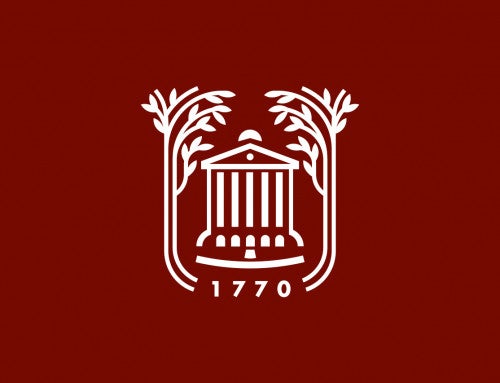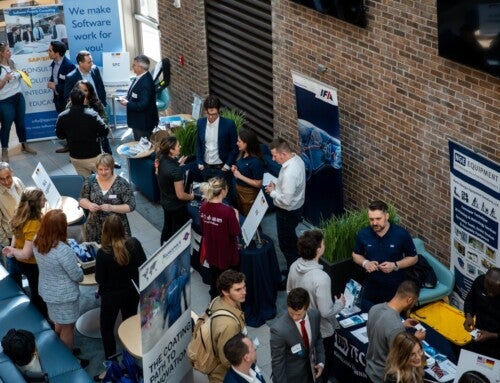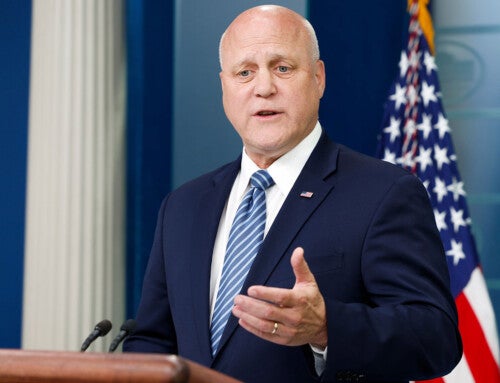The following is an op-ed by College of Charleston President Glenn F. McConnell ’69. It is being published in newspapers throughout South Carolina.
South Carolina’s economy stands at a crossroads today. One path leads to prosperity; the other, stagnation.
If that sounds like an alarmist’s exaggeration, I assure you that it is not. Our collective future is dependent on the choices we make now regarding the lives and careers of South Carolinians.
In terms of our state’s economic development, the idea is pretty simple. Imagine a three-legged stool: One leg is the recruitment of industry (bringing jobs to the state), the second leg is our transportation system (getting workers to those jobs) and the third leg is education (helping workers earn and hold onto those jobs).

President Glenn F. McConnell ’69
Unfortunately, we are adequately investing in only one of the three legs: the recruitment of industry. And while our state leaders have done a remarkable and praiseworthy job using incentives to attract top-level businesses, our state will never significantly better the quality of life for all its citizens without increased investment in the other two legs.
That’s not to say that people are not discussing transportation and education. There is certainly plenty of talk. When it comes to roads, from Oconee to Horry, from York to Beaufort counties, every corner of our state has serious problems with our deteriorating transportation infrastructure. Some state leaders are talking about fixing the roads using the surplus revenue we currently have from the general fund, which is derived primarily from corporate and personal income taxes and sales tax revenue. While that may sound like a good idea, it’s not. For one, the general fund was never intended for roads, but rather for education and core services. And two, the state actually needs a dedicated and sustainable source of recurring funds for roads.
Think of it this way: you could take every bit of new revenue in the general fund for the next five years and dump it into the road system, and it will have the same effect that a raindrop has on Charleston’s harbor tide. The road system needs $42 billion, and depleting current one-time surplus monies (approximately $450 million) is not only short-sighted, but it will do next to nothing in addressing the overall and long-term problem. You don’t fix a broken spine with a Band-Aid.
I agree with the S.C. Chamber of Commerce and other leaders in the state who have called for an increased gas tax, indexed with inflation, to repair and expand our broken road system. Although some politicians may be staunchly opposed to ever raising one cent in taxes, now is not the time for stubborn ideology, but rather for mature governance. This modest tax increase – especially in light of current gas prices – represents a critical component to finding and funding a solution to our highways instead of a one-year political fix.
In fact, we need only look to our parents and grandparents for the path forward. When the Greatest Generation returned from World War II, they reached into their pockets and invested in infrastructure. And their investment paved the way for our state’s and our nation’s economic rise for decades. However, we are now riding and driving on their legacy, and it’s time for our generation to do its part.
And that leads me to the third leg: education. Education is how we fill the knowledge and skills gap keeping South Carolinians from top-line jobs. Here, at the College of Charleston, we take a holistic approach to educating our students. We train their minds to think critically, analytically and creatively so they can adapt to the challenges ahead. These are proven skills that cannot be robbed by time and technology.
But in order for the state’s universities and colleges to continue to properly educate our students for the jobs of today and tomorrow, we need help when it comes to our classroom buildings. We need increased assistance that does not pull resources away from our academic and student experience as well as dollars from our students’ pockets. Across the state, the taxpayers’ buildings at our public universities and colleges are leaking and falling into disrepair. Because the state has cut direct funding over the past 10 years to higher education and not had bond bills to upgrade its buildings, our institutions have had to rely on tuition and fees in order to partially address those needs. In truth, that means students have become the primary caregivers of these public buildings. And piling more debt on them is not right.
I encourage state leaders to re-engage with higher education and their public missions by spending non-recurring surpluses on public buildings. I also encourage legislators to pass a bond bill that will allow institutions to address their facilities needs without primarily relying on tuition and fees. In this low-interest-rate environment, the state has the capacity to borrow without affecting the state’s operational budget one dime. It makes fiscal sense and just good business sense. However, by not acting now and supporting our state’s public universities, we – both our legislators and the citizens of the state – are giving our tacit approval in creating a generation of debtors.
I believe we can make these necessary improvements in our roads and education without great financial sacrifice. And in so doing, we will then truly live up to the spirit of the first (and perhaps lesser known) of our state mottos: Animis Opibusque Parati – “Prepared in Mind and Resources.” And thus, we will choose the path to greater prosperity.



